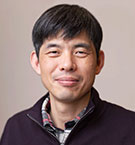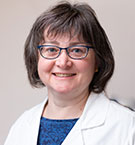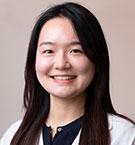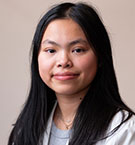Kim Lab
Contact Information
Kim Lab
MGH Department of Neurology
Genetics and Aging Research Unit
Bldg. 114, 16th Street
Charlestown,
MA
02129
Email: dykim@mgh.harvard.edu
Doo Yeon Kim, PhD
Associate Professor of Neurology
Harvard Medical School
Massachusetts General Hospital
Explore This Lab
Research Overview
The Molecular and Cellular Neurobiology of Diseases Laboratory, led by Dr. Doo Yeon Kim, specializes in unraveling the molecular mechanisms underlying Alzheimer's disease (AD) using state-of-the-art 3D human neural cell culture models and brain organoids. Our research is dedicated to elucidating the pathological pathways involved in the progression of AD, with a particular emphasis on understanding how the accumulation of pathogenic Aβ42 triggers tau pathology, neuroinflammation, and neurodegeneration. We leverage our advanced three-dimensional (3D) human neural cell culture models and inducible brain organoid models of AD to explore these pathogenic processes in a human-brain-like environment. Additionally, we are actively engaged in AD drug discovery efforts, employing 3D cell model-based screening and bioinformatic approaches.
Research Thrusts:
- Constructing 3D human cellular models of AD and AD-related neurodegenerative diseases: We have been pioneering the development of innovative three-dimensional (3D) human neural cell culture models and brain organoids, which comprehensively recapitulate pathological cascades of AD and ADRD.
- Investigating the molecular mechanism of AD pathogenesis: We are investigating the underlying molecular mechanisms driving pathogenic cascade of AD, including A42-induced tau pathology and neuroinflammatory components using advanced 3D human cellular models of AD.
- Exploring new drug candidates for AD patients: We are screening and validating novel drug candidates for AD utilizing 3D cell model-based screening and bioinformatic approaches.
Lab Members
 Doo Yeon Kim, PhD
Doo Yeon Kim, PhD
Principal Investigator
Doo Yeon Kim is an associate professor of Neurology at Harvard Medical School and Massachusetts General Hospital. He received a Ph.D. from the Korea Advanced Institute of Science and Technology in 1998. After finishing his post-doctoral training at Dr. Dora Koavcs's laboratory, Dr. Kim started his laboratory at Massachusetts General Hospital in 2009. Since then, he and his team have been studying the molecular mechanism of Alzheimer'’s disease pathogenesis and novel drug candidates using advanced three-dimensional (3D) human cellular models. Dr. Kim has received the Smithsonian American Ingenuity Award, Partners Innovation Discovery Award, and The Roger Ackerman Memorial Grant Award for his contribution to developing 3D Alzheimer's disease in-a-dish models and his efforts on AD drug discovery.
View Dr. Kim's Harvard Catalyst profile
 Sang Su Kwak, PhD
Sang Su Kwak, PhD
Instructor
Dr. Sang Su Kwak is an Instructor of Neurology at Massachusetts General Hospital and Harvard Medical School. He received his Ph.D. in Biological Sciences from Korea Advanced Institute of Science and Technology (KAIST) in 2011. Since joining Dr. Doo Yeon Kim’s laboratory in 2015, Dr. Kwak has investigated molecular mechanisms of how accumulation of Aβ42 induces robust tau pathology, one of the pathological features of Alzheimer’s disease (AD). For his research, Dr. Kwak exploits not only conventional 3D AD cellular models but also newly established systems such as the 3D non-cell autonomous (3D-NCA) cell culture system that potentially mimics the sporadic condition of AD pathology and the DOX-inducible 3D AD cell culture system that enables to investigate time-dependent pathogenic progression of AD pathology at molecular/transcriptional levels. Dr. Kwak also investigates direct- or indirect-crosstalk mechanisms between neurons and glial cells (astrocytes and microglia) in 3D AD cellular models. Dr. Kwak has recently developed a novel AD drug discovery platform to identify valid drug candidates unbiasedly by analyzing pathway profiles of dysregulated signaling cascades in AD. Dr. Kwak continues investigating how these cellular cascades relay signals from pathogenic Aβ42 accumulation to neurotoxic impacts such as neural cell damage and robust tau pathology.
 Joseph Park, PhD
Joseph Park, PhD
Instructor
Joseph Park is an Instructor of Neurology at Harvard Medical School and Massachusetts General Hospital. He received his Ph.D. from Yonsei University in 2012. His research aims to enhance scientific understanding of the function of brain-resident immune cells in Alzheimer's disease (AD) through the application of a mu approach (single-cell/Bulk RNA/ATACseq).
 Luisa Quinti, PhD
Luisa Quinti, PhD
Instructor
Dr. Quinti received her undergraduate degree in Italy and then pursued a Ph.D. in Chemistry in the UK. She moved to Massachusetts General Hospital as a post-doctoral fellow and is currently an Instructor in Dr. Tanzi’s Genetics and Aging Research Unit. She has been involved in the development of therapeutics for neurodegenerative diseases since 2005. Dr. Quinti is passionate about generating reliable models of Alzheimer’s disease that can fast-track the search for a cure and identify novel drug candidates and targets. To that effect, together with Dr. Doo Yeon Kim, she is translating 3D AD models into robust drug-screening platforms, to find potential AD drugs that can be readily evaluated for human trials. Dr. Quinti also closely collaborates with Dr. Ana Griciuc to investigate natural products and other compounds that reduce neuroinflammation.
 Matthias Hebisch, PhD
Matthias Hebisch, PhD
Research Fellow
Matthias received his PhD in Experimental Medicine from the University of Bonn in 2020 while contributing to the development of the first 3D in vitro model of Alzheimer’s disease to recapitulate phospho-tau pathology in response to β-amyloid (Aβ) accumulation. To this day, the central mechanism behind Alzheimer’s disease, Aβ-driven neurodegeneration, is too poorly understood to be targeted for therapeutic intervention. Addressing this issue, Matthias studies two main types of Aβ found in Alzheimer’s disease that show paradoxical effects (Aβ42 and Aβ40). He employs induced pluripotent stem (iPS) cell technology and precision genome engineering to trigger isoform-enriched, genetically standardized, and chemically controllable Aβ generation in brain organoids, the most complex human brain-like constructs currently available. Using this unique disease model together with analysis methods ranging from single-cell RNA sequencing (scRNAseq) to microelectrode arrays (MEA), Matthias aims to untangle why and how specific Aβ species drive AD’s pathogenic cascade.
 Byunghoon Kang, PhD
Byunghoon Kang, PhD
Research Fellow
 YeonSu Ryoo
YeonSu Ryoo
Graduate Student
 Thejesh Kalatturu
Thejesh Kalatturu
Research Technician
 Dajun Kang
Dajun Kang
Research Technician
 Sarah Viet Ho
Sarah Viet Ho
Undergraduate Student
 Monica Zheng
Monica Zheng
Undergraduate Student
Recent Publications
- Jorfi M, Park J, Hall CK, Lin CJ, Chen M, von Maydell D, Kruskop JM, Kang B, Choi Y, Prokopenko D, Irimia D, Kim DY, Tanzi RE. Infiltrating CD8+ T cells exacerbate Alzheimer's disease pathology in a 3D human neuroimmune axis model. Nat Neurosci. 2023 Sep;26(9):1489-1504. doi: 10.1038/s41593-023-01415-3. Epub 2023 Aug 24. PMID: 37620442.
- Kwak SS, Washicosky KJ, Brand E, von Maydell D, Aronson J, Kim S, Capen DE, Cetinbas M, Sadreyev R, Ning S, Bylykbashi E, Xia W, Wagner SL, Choi SH, Tanzi RE, Kim DY. Amyloid-β42/40 ratio drives tau pathology in 3D human neural cell culture models of Alzheimer's disease. Nat Commun. 2020 Mar 13;11(1):1377. doi: 10.1038/s41467-020-15120-3. PMID: 32170138; PMCID: PMC7070004.
- Park J, Wetzel I, Marriott I, Dréau D, D'Avanzo C, Kim DY, Tanzi RE, Cho H. A 3D human triculture system modeling neurodegeneration and neuroinflammation in Alzheimer's disease. Nat Neurosci. 2018 Jul;21(7):941-951. doi: 10.1038/s41593-018-0175-4. Epub 2018 Jun 27. PMID: 29950669; PMCID: PMC6800152.
- Choi SH, Kim YH, Hebisch M, Sliwinski C, Lee S, D'Avanzo C, Chen H, Hooli B, Asselin C, Muffat J, Klee JB, Zhang C, Wainger BJ, Peitz M, Kovacs DM, Woolf CJ, Wagner SL, Tanzi RE, Kim DY. A three-dimensional human neural cell culture model of Alzheimer's disease. Nature. 2014 Nov 13;515(7526):274-8. doi: 10.1038/nature13800. Epub 2014 Oct 12. PMID: 25307057; PMCID: PMC4366007.
- Kim DY, Carey BW, Wang H, Ingano LA, Binshtok AM, Wertz MH, Pettingell WH, He P, Lee VM, Woolf CJ, Kovacs DM. BACE1 regulates voltage-gated sodium channels and neuronal activity. Nat Cell Biol. 2007 Jul;9(7):755-64. doi: 10.1038/ncb1602. Epub 2007 Jun 18. PMID: 17576410; PMCID: PMC2747787.
Featured News
Cracking an intriguing secret of centenarians: Why so few are ravaged by Alzheimer’s disease – Boston Globe
Research at Mass General Neuroscience
Mass General Neuroscience brings together the nationally ranked Departments of Neurology, Neurosurgery, Psychiatry, and the Martinos Center.
Genetics and Aging Research Unit Affiliation
McCance Center for Brain Health
Mass General Institute for Neurodegenerative Disease (MIND)
Department of Neurology
Harvard Medical School
Support Our Work
Your donations help elicit the greatest potential from the Genetics and Aging Research Unit’s superb team and fuel the research that will result in better treatment and, ultimately, cure neurological disorders.
